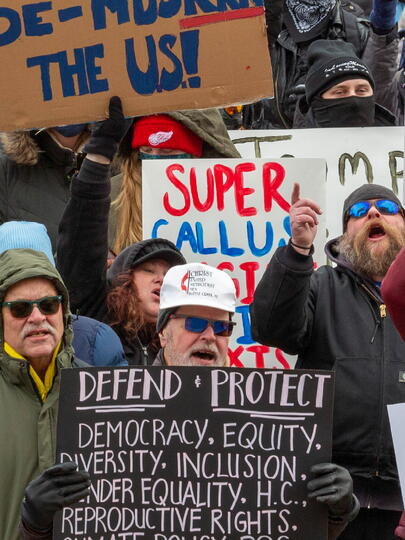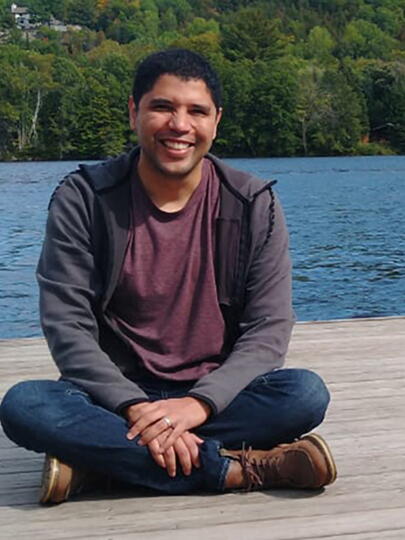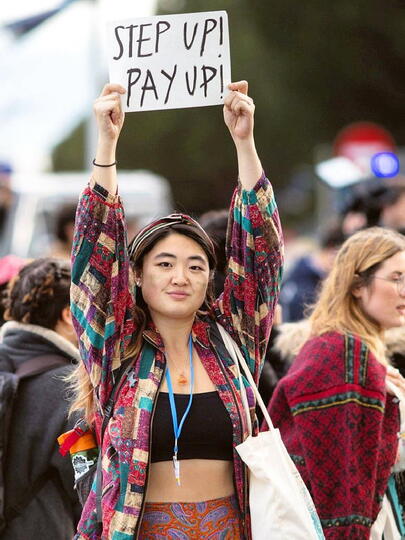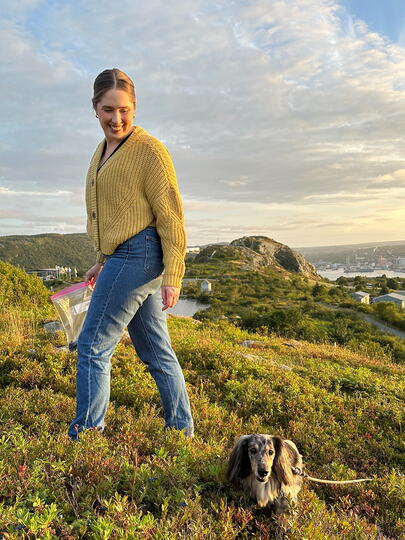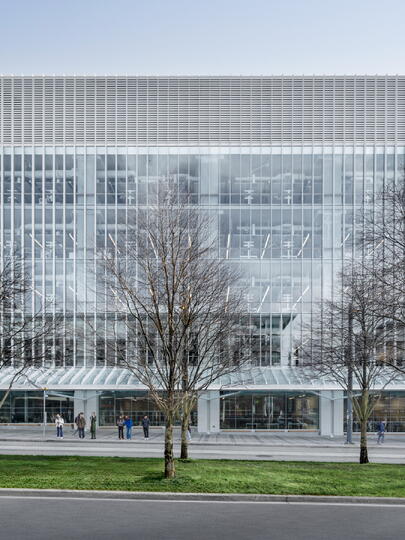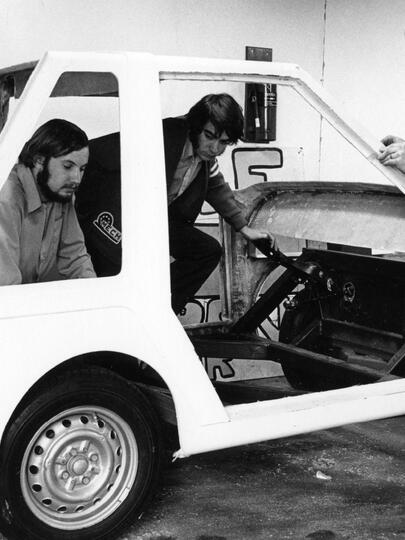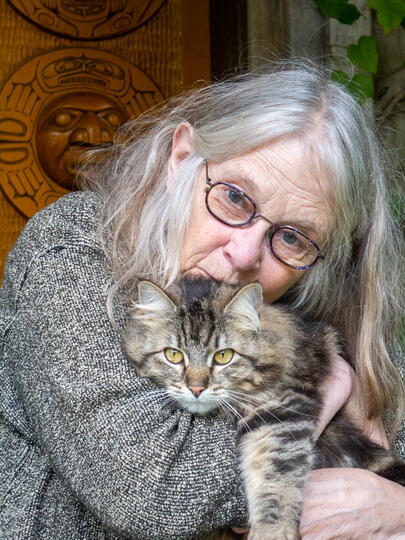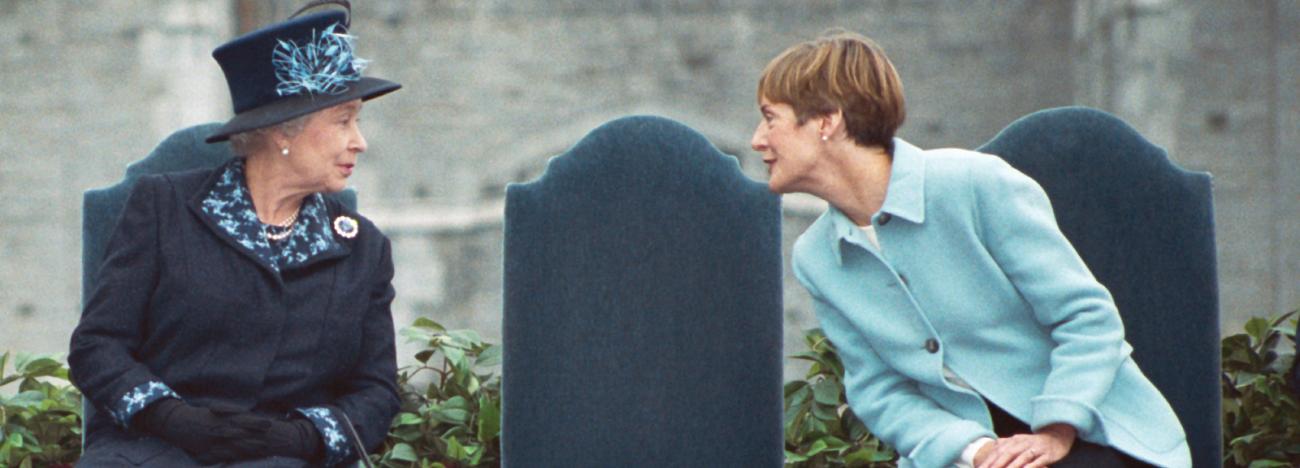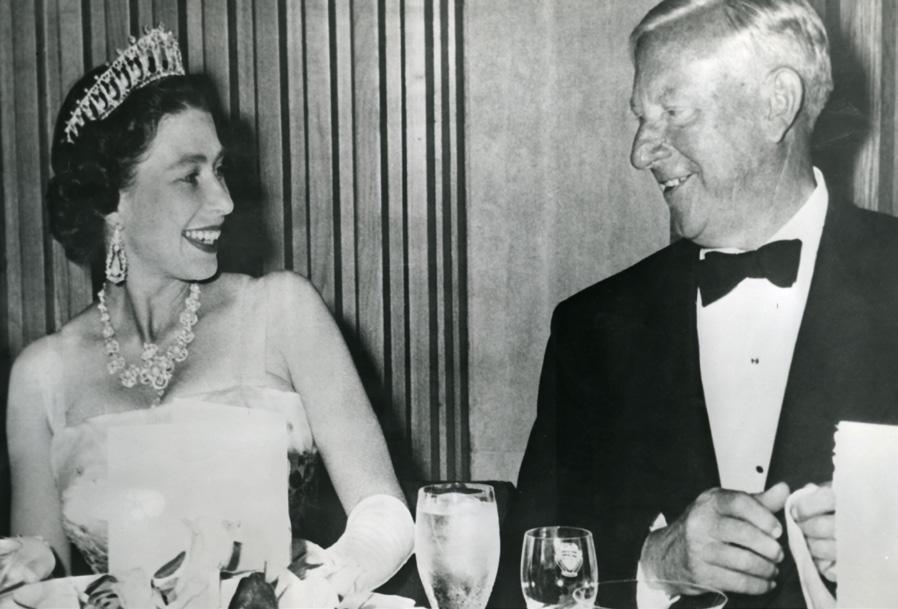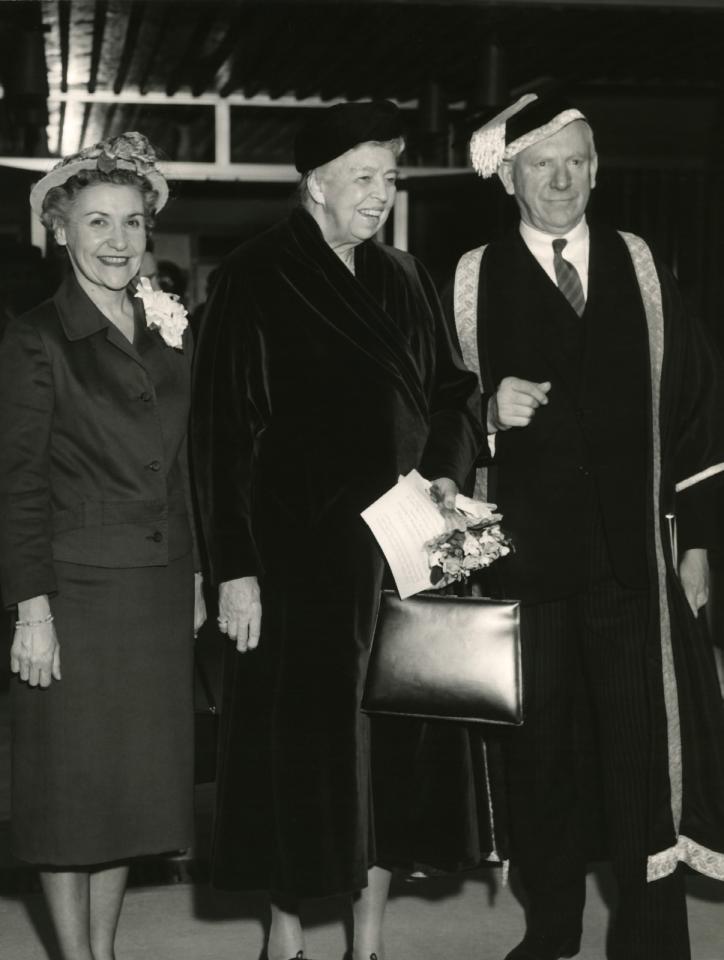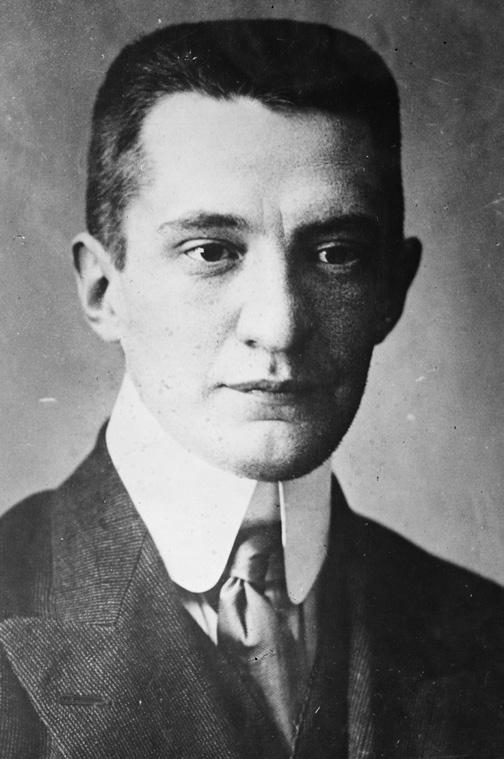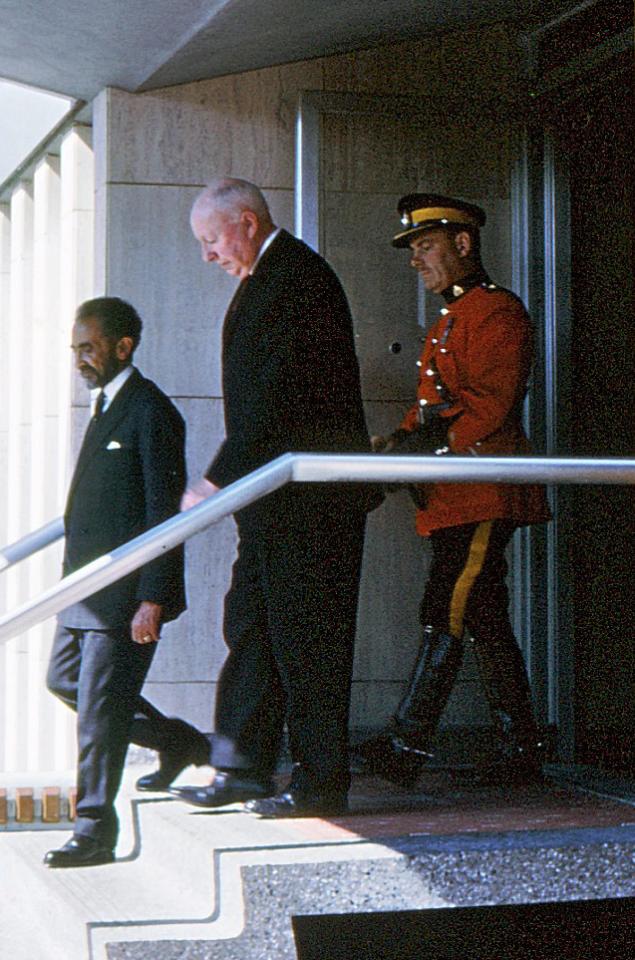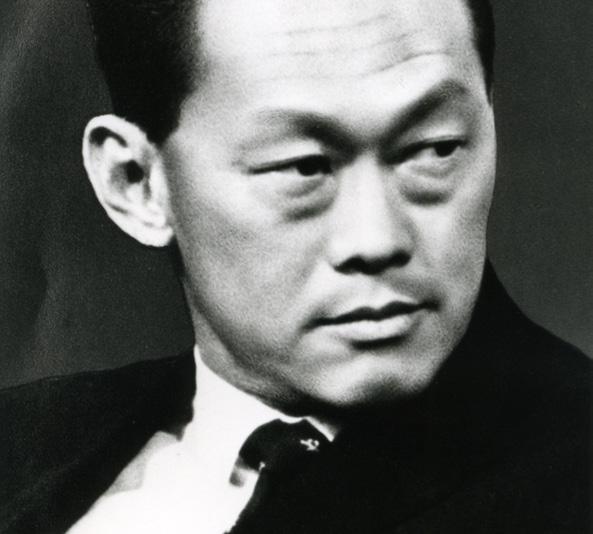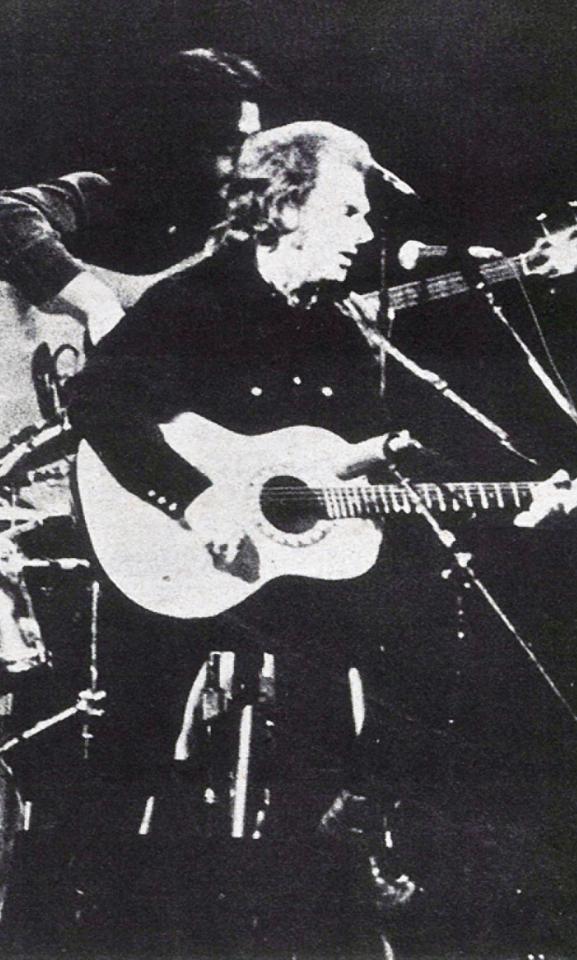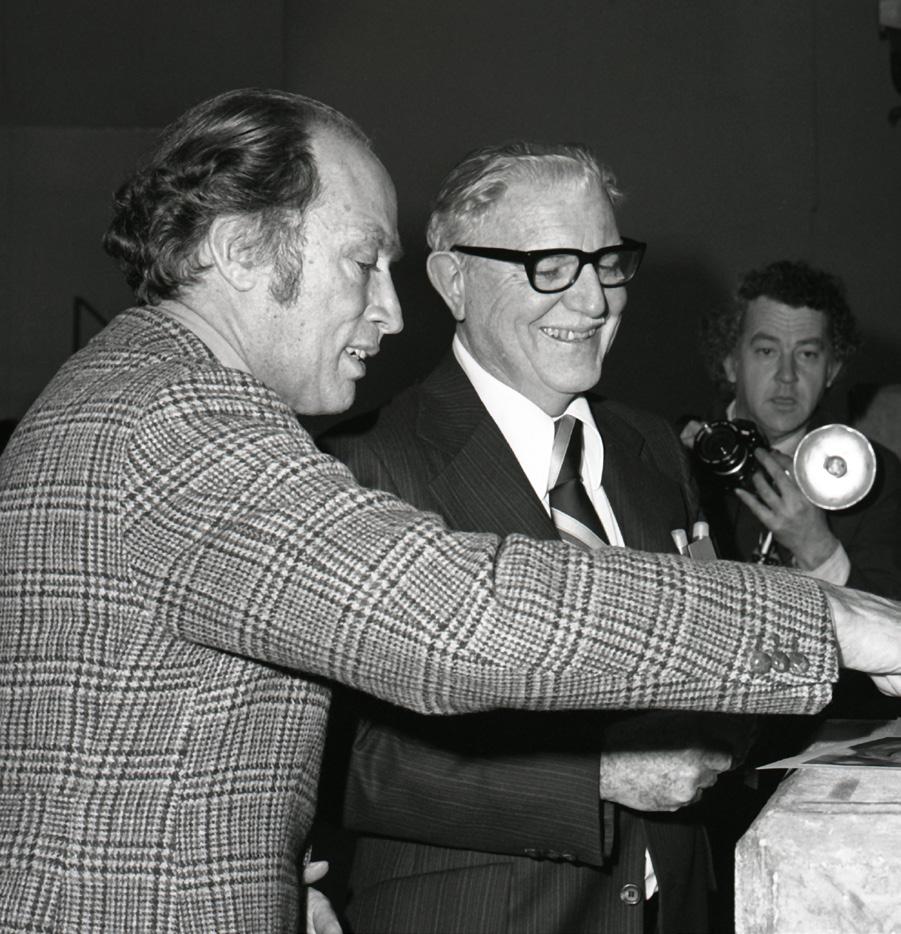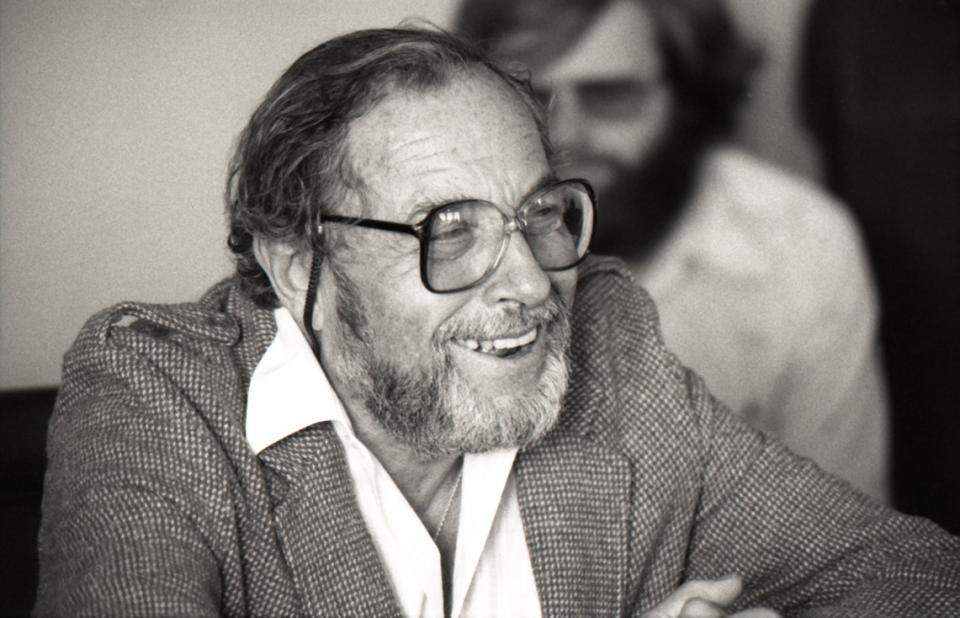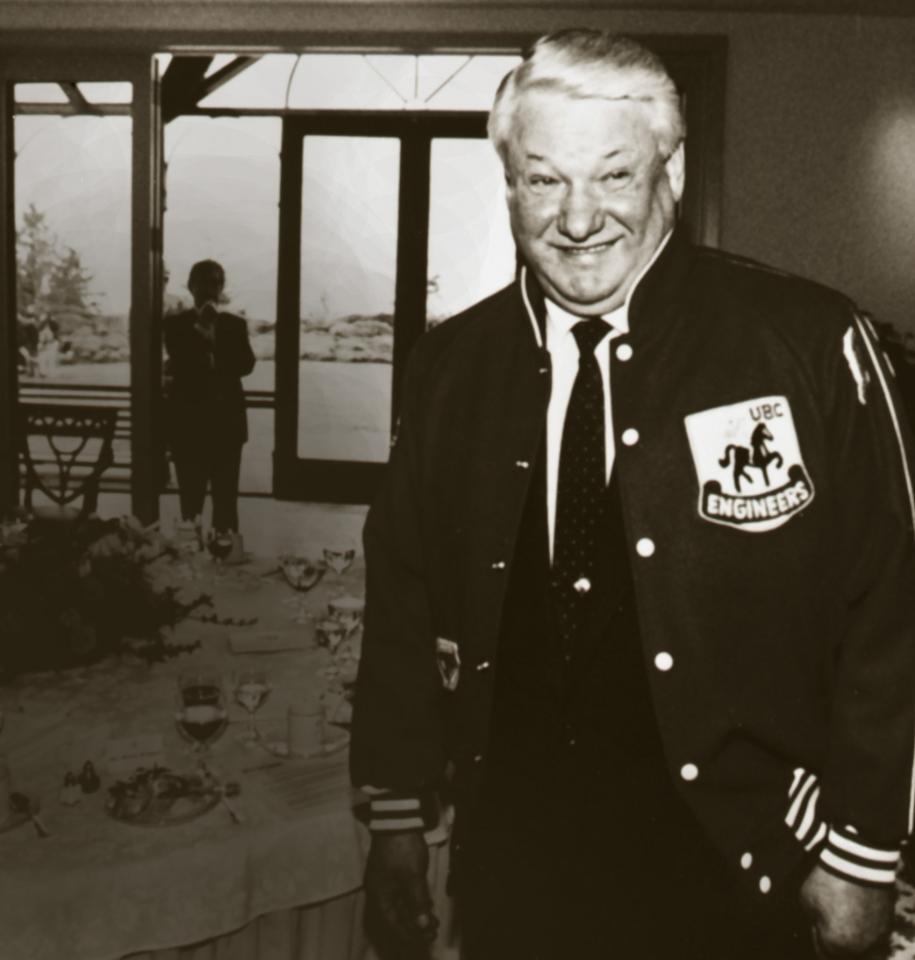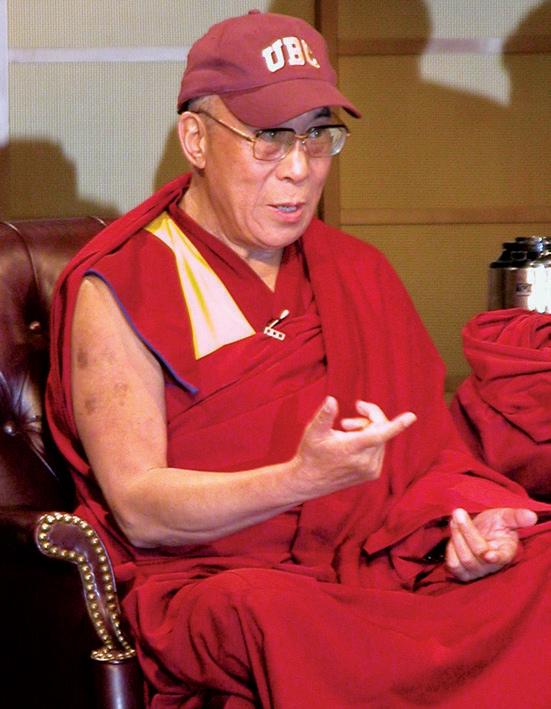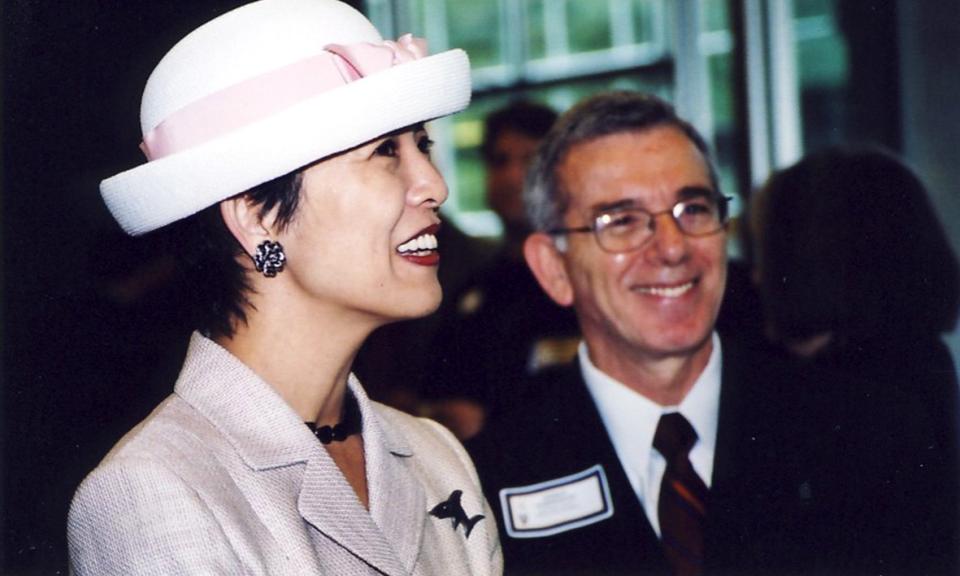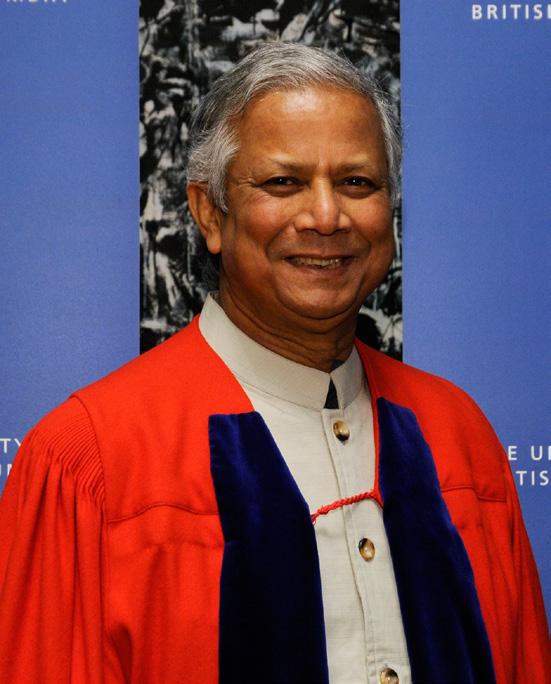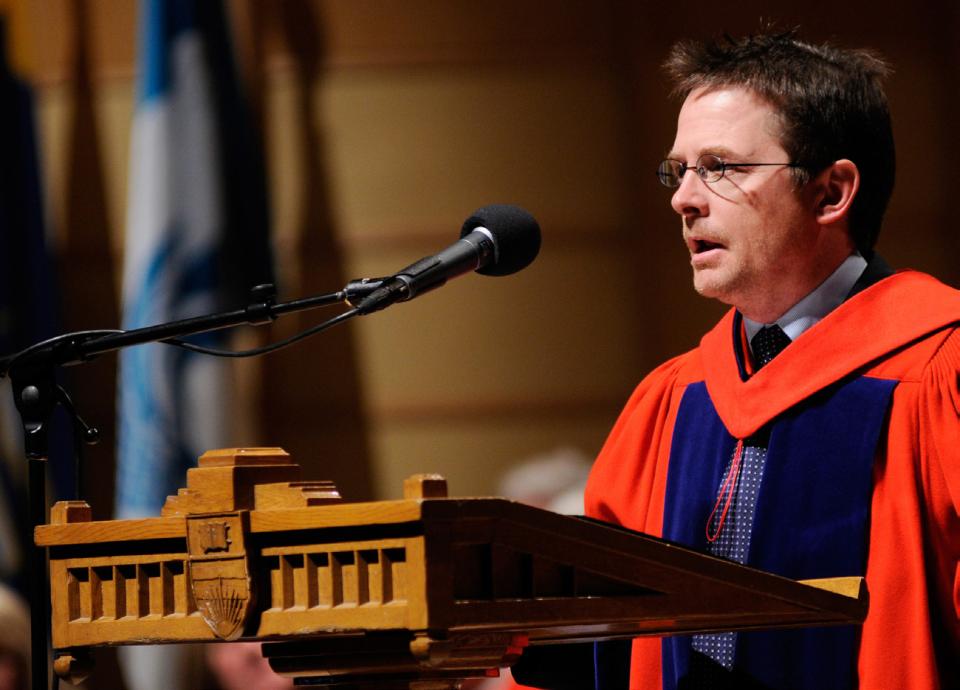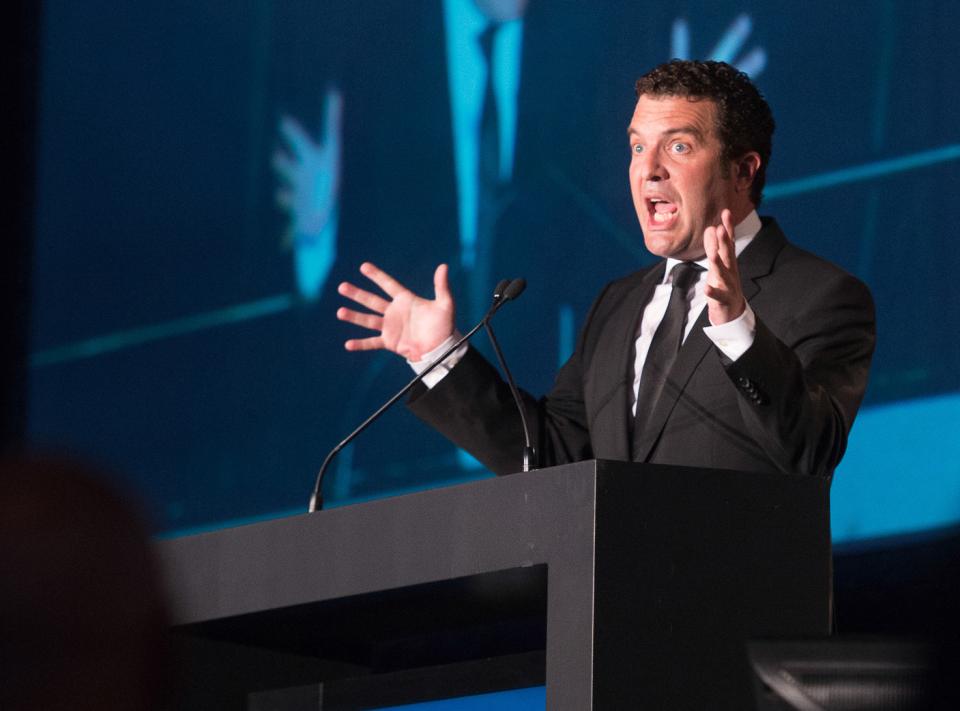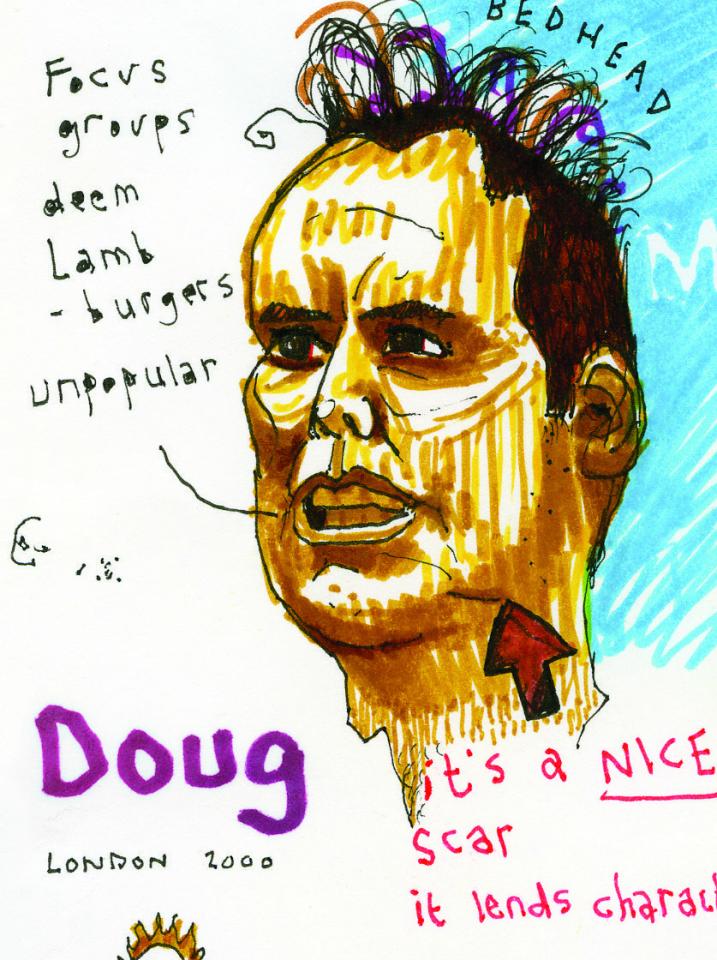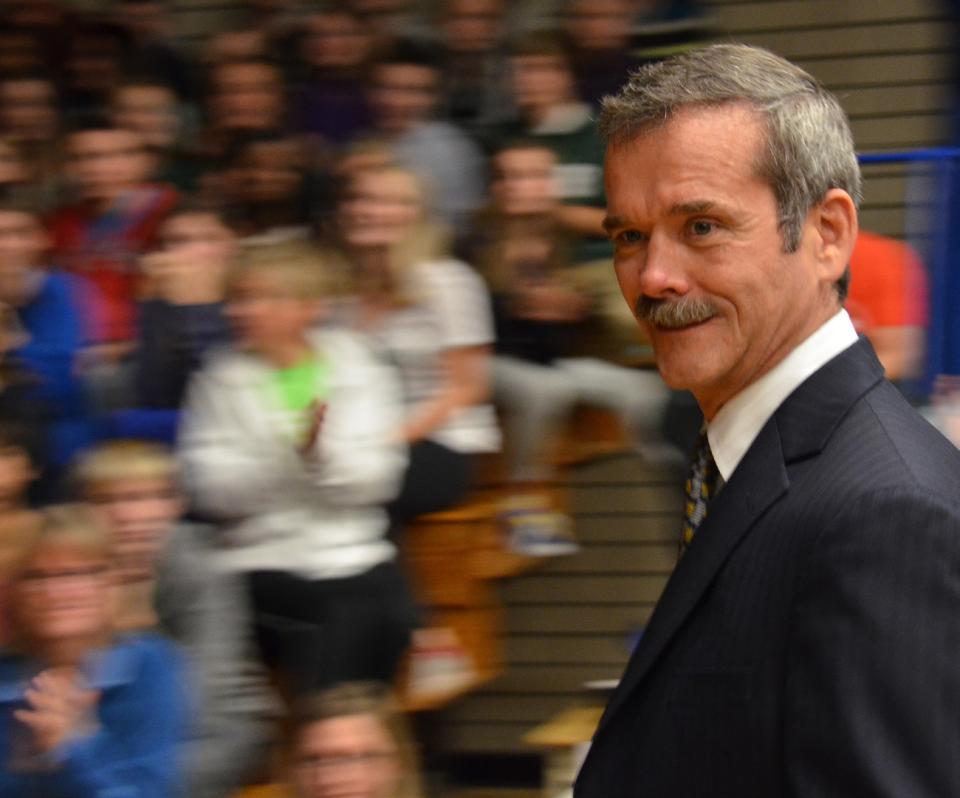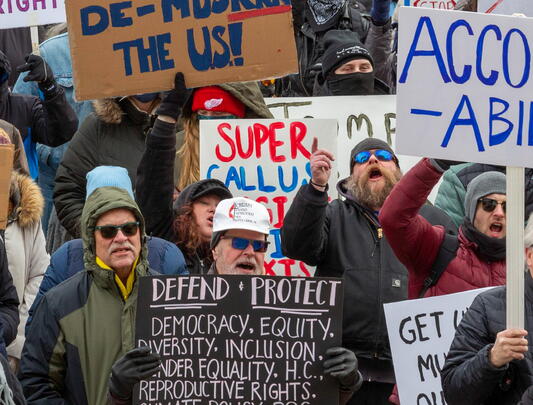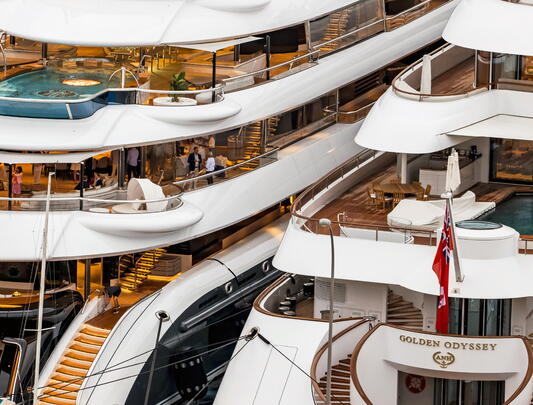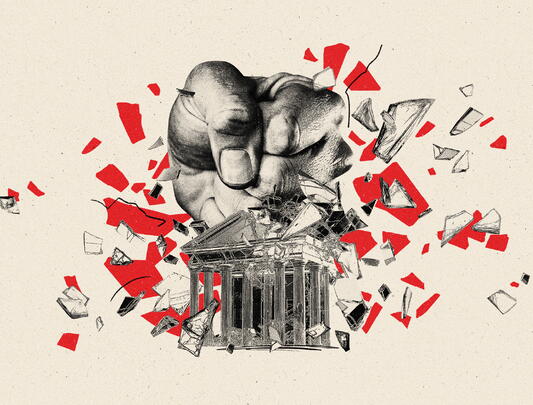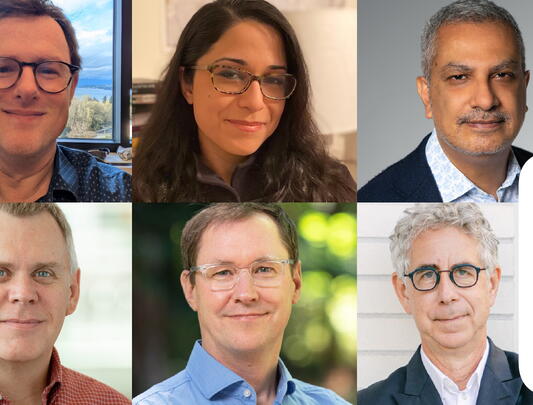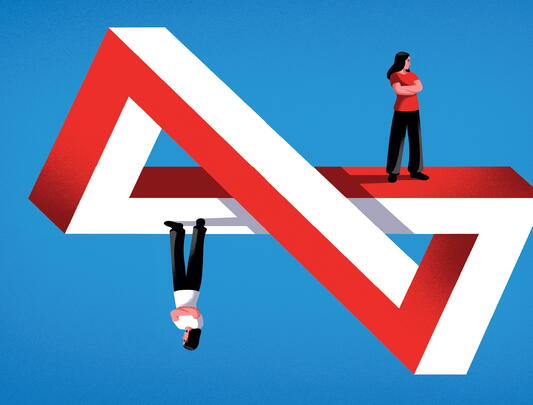Famous UBC visitors
From royalty and rock stars to playwrights and politicians, an eclectic mix of visitors has graced the university’s campus over the years. Since it’s impossible to name them all, we’ve captured a snapshot of some of UBC’s most recognizable guests from the past six decades.
1950s
Queen Elizabeth II & Prince Philip
The royal couple has visited the campus on four occasions – one of them in 1951, shortly before Elizabeth’s coronation, when they attended a UBC football game. They came again in 1959 and dined with university representatives, including then UBC president Norman MacKenzie, in the splendour of UBC’s new faculty club. In 1983, they toured the Museum of Anthropology, the Asian Centre and the Health Sciences Centre. In October 2002, they visited as part of the golden jubilee celebrations commemorating the Queen’s 50‑year reign. During this visit, at a ceremony for the opening of the Irving K. Barber Learning Centre (part of the UBC Library), the BC Premier gave a speech about the centre’s hi‑tech facilities. While he was speaking, the Queen leant over to incumbent UBC president Martha Piper and said: “Will there be books?” Other British royalty to visit UBC include Princess Margaret, who was awarded an honorary degree, Prince Charles, and Prince Andrew.
Eleanor Roosevelt
Former First Lady Eleanor Roosevelt was invited to the opening ceremonies for UBC’s International House on May 4, 1959, by Ellen Harris (pictured left) of Zonta International – a global organization that advances the status of women. International House is a centre for international and intercultural learning open to all members of the UBC community. “My mother thought Mrs. Roosevelt was a brilliant and charming woman,” recalls Susan Pond, BMus’63, Harris’ daughter.
1960s
Alexander Kerensky
A key figure in the Russian Revolution, Kerensky led the Russian Provisional Government in 1917 before being overthrown by Lenin. He came to give a talk at UBC in 1966. “If the Russians realized Lenin wanted a totalitarian regime he wouldn’t have lasted two days,” the Ubyssey reported him as saying. “Lenin won Russia as a democrat and offered constitutionalism to the people. He later revealed his true plan and the communist regime began.” Professor Emeritus Herbert Rosengarten was on campus at the time. “I remember passing him in the Buchanan quadrangle, as he was being escorted to or from his talk by some students,” he says. “It seemed amazing to me that he was still around, a figure from history and another age.” Kerensky was 85 years old at the time of his visit.
Haile Selassie
Haile Selassie, Emperor of Ethiopia, visited UBC in April 1967. “I heard that the Emperor was coming to campus at lunchtime, so I grabbed my camera and hurried over to the Faculty Club,” recalls Professor Emeritus Herbert Rosengarten. “There was a large black limo outside the entrance, with a driver and a Mountie, but there was no crowd to welcome our visitor; indeed, I think I was the only person in the parking lot. I didn’t have to wait long: a large group tumbled out of the building – security people, various big‑wigs, mostly tall men in dark suits almost obscuring the small figure of the Emperor. I stood on the far side of the limo, and took four or five snapshots; no‑one stopped me, or asked for my credentials, or told me to step away from the car; but of course the world was a rather different place almost half a century ago.”
Lee Kuan Yew
Lee Kuan Yew became Singapore’s first Prime Minister in 1959 and remained in the post for 30 years. In 1968, he visited North America for a two‑month period of study and rest and visited UBC to give two lectures, meet faculty members, and use the Library for study. According to the Ubyssey, he wanted little fuss: “’I’ve heard it’s beautiful and quiet here,” he reportedly said at a press conference. “I want to get away from the ceaseless administration I’m faced with in Singapore.” Unfortunately for Lee, his visit coincided with the student take‑over of the Faculty Club led by American activist Jerry Rubin, and he was in the building when it happened. Ubyssey reporter James Conchie explained what went on: “Against the opposition of several very worried‑looking faculty members, he agreed to speak to the Ubyssey. Lee, who has indicated a strong desire for privacy during his stay, seemed amused by the occupation of the club. With a large grin, he said: ‘All this isn’t bothering me at all. It takes something of a much more serious nature than this to get me excited. What is happening here? Everyone seems to be running around in a great fluster,’ he said. And then, after promising to speak to the Ubyssey again before he leaves the city, the quiet prime minister locked the door and returned to reassuring some very, very upset faculty members.”
1970s
Van Morrison
On February 17, 1974, more than 4,500 people crammed into the smoke‑filled War Memorial Gym to hear Van Morrison belt out his hit song Brown Eyed Girl, among other fan favourites. “There wasn’t a parking space available within a square mile of the War Memorial Gym,” reported the Ubyssey two days later. “People double and triple parked. Inside you couldn’t move and the smoke was thick. If you didn’t want to hear this concert stoned, you couldn’t breathe. People crushed onto the floor space clutching bottles in paper bags. It was not a place for claustrophobia victims… The gym floor bounced up and down. In the back row asses jiggled and toes tapped.”
Pierre Trudeau
Pierre Elliott Trudeau visited in 1976 to speak at the official dedication ceremony for TRIUMF, a facility on the university’s south campus that houses the world’s largest example of a cyclotron, AKA a high energy particle accelerator. Trudeau candidly acknowledged that he knew nothing about cyclotrons but was excited about the research potential they offered. “I don’t really know what a cyclotron is but I am certainly very happy Canada has one,” he said.
1980s
Tennessee Williams
In 1980, Tennessee Williams, one of the most critically acclaimed playwrights of the twentieth century, accepted the position of Distinguished Writer‑in‑Residence at UBC. Jo Ledingham, BA’82, MA’87, attended a creative writing class to which Tennessee Williams had been invited. “It was a highlight in my student life sitting around a table with him,” she says. “I was overwhelmed to be in the same room with him and was, as I recall, speechless in his white linen‑suited, panama‑hatted presence.” Many writers have visited UBC over the years for readings and book signings, including Margaret Atwood, who also taught at UBC in 1964, Michael Ondaatje, Northrop Frye, Alice Munro, Carol Shields, Robertson Davies, and Dylan Thomas, who described Vancouver as “a quite handsome hellhole.”
1990s
Bill Clinton and Boris Yeltsin
On April 3, 1993, UBC gained worldwide attention when two world leaders, US President Bill Clinton and Russian President Boris Yeltsin, converged on campus for their two‑day Vancouver Summit. The first formal meeting between the two leaders was held at Norman MacKenzie House, the residence of then UBC president David Strangway. Today, two brown‑leather wingback chairs used by the two leaders serve as a lively topic of conversation for visitors to the house. “The beauty of Vancouver has inspired our work here, and this weekend I believe we have laid the foundation for a new democratic partnership between the United States and Russia,” said Bill Clinton at a news conference following the summit.
2000s
Shirin Ebadi, Desmond Tutu, and the Dalai Lama
Honorary degrees were conferred upon Nobel Peace Prize recipients Archbishop Desmond Tutu, His Holiness the XIV Dalai Lama and human‑rights activist Professor Shirin Ebadi on April 19, 2004. Jo‑ann Archibald, associate dean for Indigenous Education at UBC, remembers Musqueam’s community leaders and elders welcoming the Dalai Lama to Musqueam’s ancestral and unceded lands at UBC. “The Dalai Lama was draped in a Salish robe while he stood on cedar boughs in the First Nations Longhouse,” she recalls. “Eagle down feathers were sprinkled in the air to symbolize the highest respect Indigenous people have for a visitor. Imagine white fluffs of eagle down mingled with the scent of cedar; drumming and singing; and good feelings of mutual respect experienced by all who attended this ceremonial event.” All three Nobel laureates attended a round table dialogue on the theme “Balancing Educating the Mind with Educating the Heart.”
Princess Takamado
On June 9, 2004, Her Imperial Highness Princess Takamado of Japan presented a collection of books on Japanese society and culture to UBC’s Asian Library in honour of her late husband, Prince Takamado. During her visit, Professor Emeritus Herbert Rosengarten led her on a tour of the Nitobe Memorial Garden. “My stroll with the princess was very pleasant,” he recalls. “We had both been students at Cambridge, and we exchanged reminiscences of struggling up Huntingdon Road on gearless bikes. After the walk we went to a reception in the Liu Centre; there were lots of people waiting to greet her, but despite all the handshakes and polite trivialities she had to endure, the smile never left her face.” Their Imperial Highnesses the Emperor and Empress of Japan visited UBC in July 2009. Emperor Akihito’s first visit to UBC was in 1953, when he was crown prince.
Muhammad Yunus
In 2008, renowned economist and Nobel Peace Prize recipient Muhammad Yunus received an honorary degree and participated in a colloquium on social corporate responsibility. Yunus, founder of the microfinance model and the Grameen Bank, has been praised for conceptualizing and building the field of “micro‑credit,” which has created financial independence for thousands of people in the world’s poorest countries.
Michael J. Fox
In recognition of his outstanding contributions both as an entertainer and an advocate for Parkinson’s research, UBC conferred an honorary degree on hometown hero Michael J. Fox in May 2008. “In every aspect I have been blessed with the opportunity to work toward leaving an impact on the world and on the lives around me and to be a partner in the critical research for answers,” he said during his acceptance speech.
2010s
Rick Mercer
For his dedication to the “Spread the Net” campaign, which aims to prevent the spread of malaria in Africa with bed nets, for his contributions as an advocate for individuals living with HIV and AIDS, and for uniting Canadians in laughter, Rick Mercer was awarded an honorary degree on May 26, 2010. During his acceptance speech, he said: “... each and every one of you, and believe me when I say this, is a huge inspiration because we know nobody graduating today has done so without a lot of hard work, sacrifice, talent and dedication… other than me.” In 2013, Mercer was the star attraction at Alumni Weekend, presenting his show at The Old Gym.
Douglas Coupland
In 2010, Douglas Coupland donated his archival records to UBC Library. Dating back to 1980, these records include manuscripts, photos, visual art, fan mail, correspondence, press clippings, audio/visual material and the first hand‑written manuscript of Generation X. On May 27, 2010, he was awarded an honorary degree for his prolific and prodigious contributions as a writer and artist.
Chris Hadfield
In October 2013, astronaut Chris Hadfield gave a talk – The Sky is Not the Limit – at the Kelowna Community Theatre as part of UBC Okanagan’s Distinguished Speaker Series. Stephen McNeil, an associate professor of chemistry, was one of those lucky enough to have dinner with Hadfield before the event. “What struck me most about Colonel Hadfield was his modesty,” says McNeil. “An astronaut in command of the ISS has achieved the pinnacle of a career that only the elite of the elite may ever begin and from which the smallest deficiency is grounds for dismissal, but to his mind he’s just a farm kid from Ontario who one day decided to be an astronaut.”
